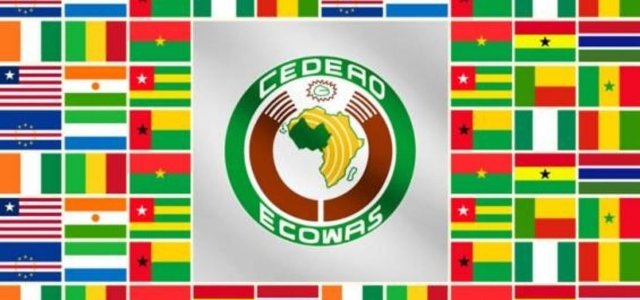The ECOWAS Court of Justice has awarded $80,000 (about N32;7 million) to ex-policemen, Mr. Evaristus Egbegbu, as compensation for his unjustified retirement in 1990.
According to a press statement from ECOWAS information stated, the court awarded the fee against the federal government which was the respondent in the case instituted.
At the official exchange rate of N410 to $1, the $80,000 award amounts to about N32.7 million. But at the parallel market’s exchange rate of N502 to $1, the money translates to about N39.8 million.
The court, in its judgement, read by a member of the panel of judges, Gberi-be Ouattara, ordered that Egbegbu be awarded the monetary compensation for the “moral prejudice and all other losses suffered as a result of the violation of his rights related to his compulsory retirement in 1990.”
The court in its judgement held that Egbegbu’s rights as contained in Articles 3(2) of the International Covenant on Civil Political Rights (ICCPR) and 7(1) (d) of the African Charter on Human and Peoples’ Rights were violated.
It also stated that the applicant was denied the right to be tried in due time.
Having established that, the ECOWAS court declined the applicant’s request to enforce the 2009 judgement of a Nigerian High Court which ordered his reinstatement to his appropriate rank in force “without loss of seniority, the payment of his salary and emoluments from November 27, 1990 date of the compulsory retirement until February 19, 2009.”
Although the statement was silent on Egbegbu’s rank as of the time of his forceful retirement, the court established that the officer joined the force in August 1978 but was “compulsorily retired” from service on November 27, 1990.
The panel, which had Dupe Atoki (Nigeria) and Edward Asante (presiding) as members, noted that the applicant’s efforts to “secure compliance with his judgment by recourse to the domestic mechanisms have been frustrated by the respondent when his contempt application, which sought to compel the relevant agents of the respondent to execute the judgment, was held in abeyance.”
“It is unambiguously clear, contrary to what the respondent wants the Court to believe, that the appropriate measures were not taken by the competent Authorities of the Respondent to give effect to the judgment of 19 February 2009.
“When the applicant initiated the proceedings to compel them to do the needful, his efforts have been unreasonably and unjustifiably frustrated by the Respondent’s judicial officers,” Ouattara noted.
He held that the relevant authorities of the Nigerian government, tasked to effect the earlier High Court judgement in favour of Egbegbu, refused to comply.
This made the applicant serve five written reminders, demanding compliance, to no avail.
The officer was also compelled to petition the “National Human Rights Commission which also wrote in support of the enforcement of the decision.”
However, the federal government’s defence team, in its preliminary objections, argued that the Protocol that established the ECOWAS Court and the rules of the court could not be applied “retroactively” – to events that happened previously.
It also argued that “human rights, whose protection is sought, are raised as incidental and not as the main issue.”
Dismissing the objections raised by the Nigeria government, however, the court noted that it draws its “jurisdiction to examine human rights violation cases in ECOWAS Member States from the 2005 Supplementary Protocol A/SP.1/01/05 of 19th January 2005, which came into force on the same date, as well as from its Rules adopted on 3rd June 2002.”
With Premium Times report



























































